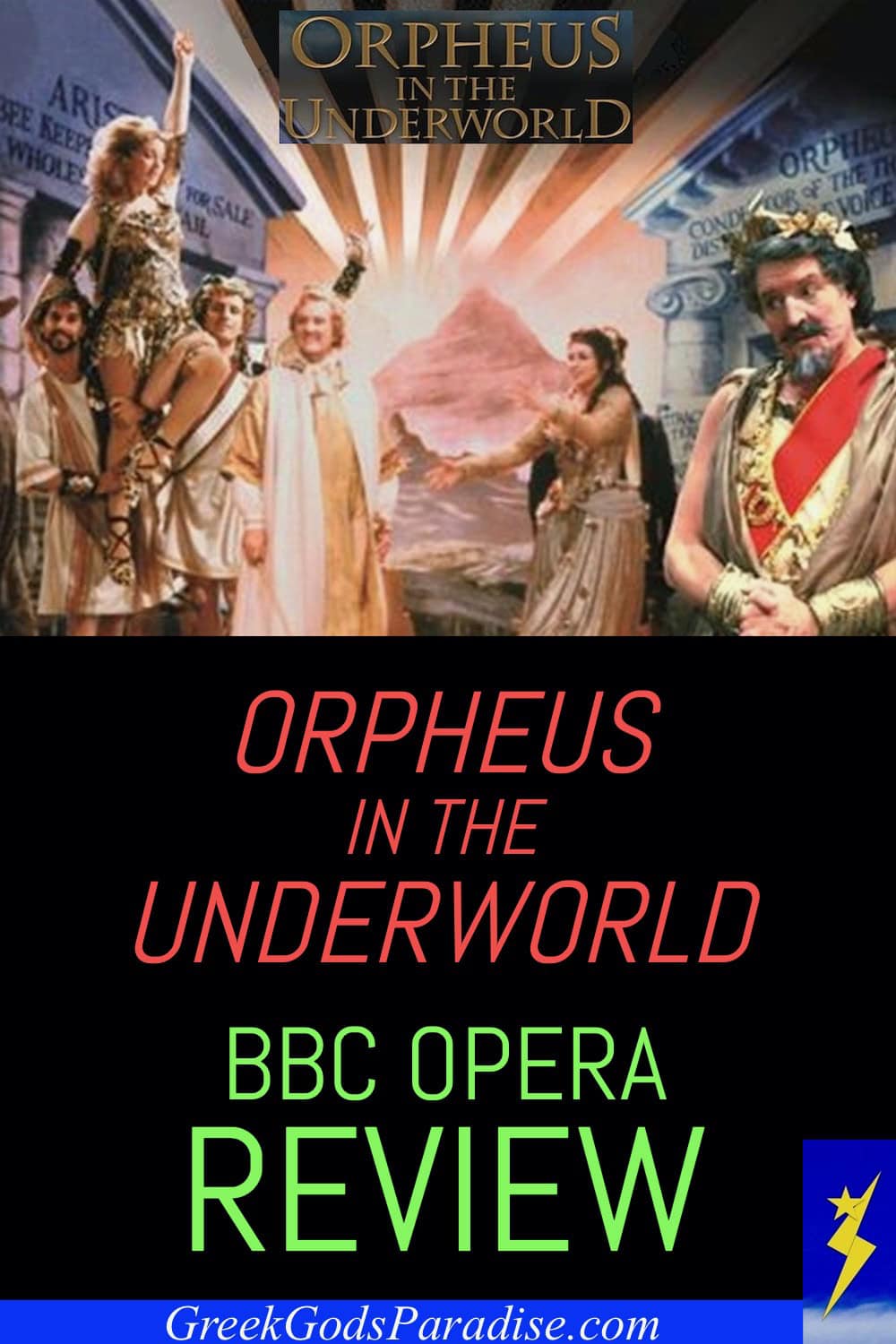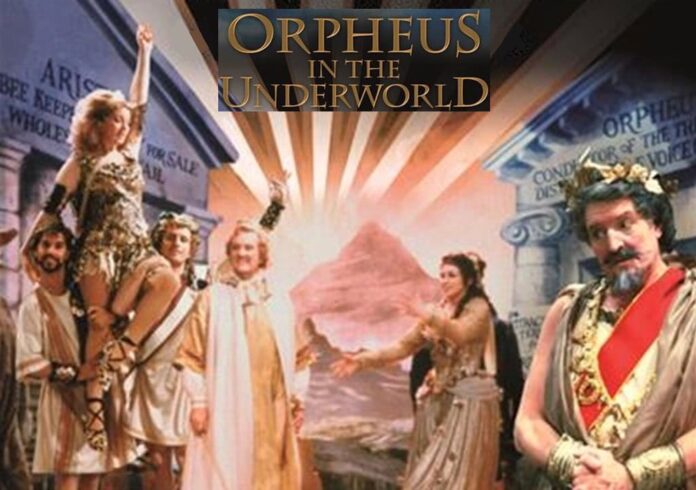In this review of “Orpheus in the Underworld,” we delve into a fascinating opera that’s inspired by Greek mythology. This remarkable 1983 television film from the BBC is a true gem that brings the classic legend to life in a spectacular way.
Get ready for an exciting spin on a timeless classic! This incredible opera adaptation of the epic story of Orpheus and Eurydice will take you on an unforgettable adventure through Earth, Mount Olympus, and the haunting realms of Hades (or Hell, as it’s called here). Picture breathtaking landscapes, unforgettable gods and goddesses, and plenty of heart-stopping drama. Trust me, this is one journey you definitely don’t want to miss!
Jacques Offenbach’s “Orpheus in the Underworld” kicks off with a spirited Cancan that perfectly sets the stage as some fancy guests start rolling in for a special opera night. It’s a lively welcome to a show that’s sure to entertain!
Set in the enchanting city of Paris in 1865, this legendary Greek myth opera unfolds in the illustrious company of their Imperial Majesties, Emperor Napoleon III and Empress Eugenie, along with the distinguished members of the Imperial Family. It’s an unforgettable night filled with culture and grandeur!
One of the coolest things about the BBC’s production of “Orpheus in the Underworld,” directed by Derek Bailey, is that it’s presented in English. This really enhances the experience for viewers, making it super enjoyable. Honestly, it’s one of the few operas I can think of that fully embraces the English language. If you’re new to opera, this one’s a fantastic choice to start with!
Orpheus in the Underworld Review: God and Character Cast
Make this sound better and smoother with a casual tone. In the audience, Napoleon III and his wife seem enthralled by the performance. But what really makes this night special is when he eventually drifts off to sleep.
In his dreams, he becomes Jupiter (or Zeus, if you will), the king of the gods — a role brought to life beautifully by Denis Quilley.
Make this sound better and smoother with a casual tone. Actress Honor Blackman makes a special guest appearance as both Juno (Hera) and Empress Eugenie.
It’s fantastic casting since she also had the iconic role as Hera in the classic film “Jason and the Argonauts” (1963).
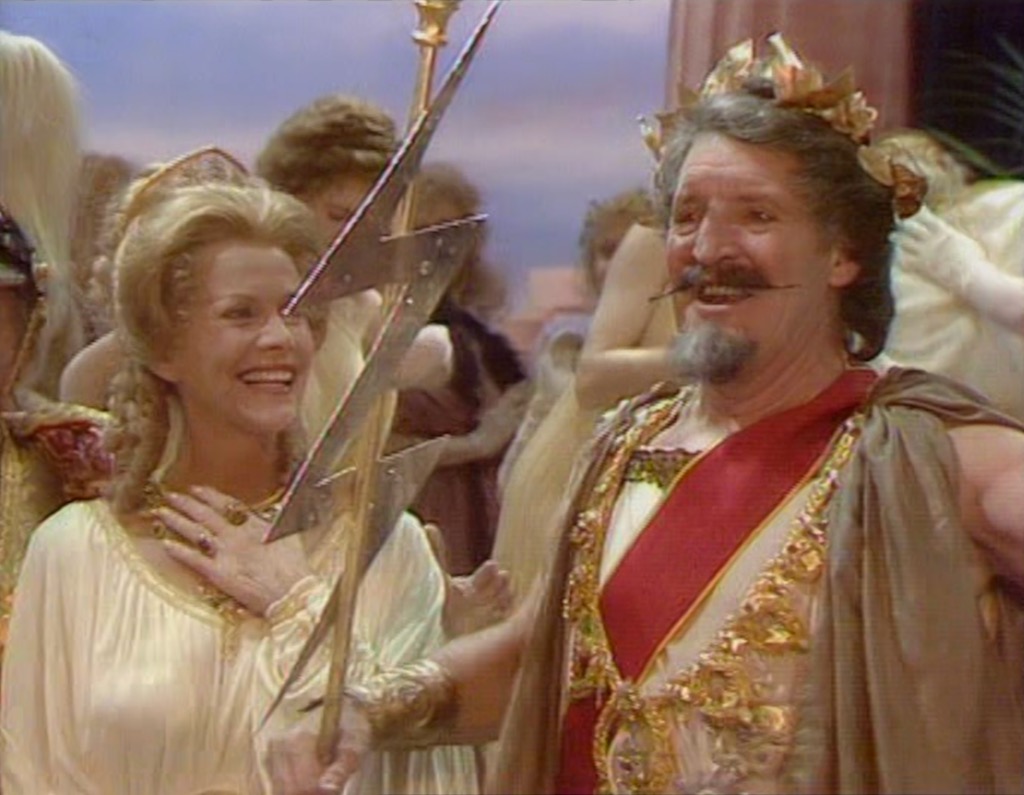
The cast of Greek mythological characters further enriches the opera experience, featuring Christopher Gable as Mercury (Hermes), Lillian Watson as Eurydice, Alexander Oliver as Orpheus, Emile Belcourt as Pluto (Hades), Elizabeth Gale as Cupid, Isobel Buchanan as Diana, Felicity Palmer as Venus (Aphrodite), and John Fryatt as Mars.
While Apollo does not make a direct appearance in “Orpheus in the Underworld,” he is referenced by Pluto, who reminds Jupiter of the joys of residing in Olympus — where Apollo’s songs can be enjoyed.
Public Opinion is portrayed by the talented Pauline Tinsley, adding a distinctive flair to the opera “Orpheus in the Underworld.”
One of the most unusual moments of this production is the introduction of a new character, John Styx, brilliantly played by Bernard Dickerson. His name is a clever nod to the River Styx from Greek mythology, and he serves as Pluto’s devoted servant and right-hand man, who also happens to be spellbound by Eurydice.
Orpheus in the Underworld Review: BBC Opera Story
In this incredible opera, viewers are transported to a dazzling world where Orpheus, typically seen as the noble son of Apollo, is playfully reimagined as a pompous violinist, completely wrapped up in his own musical ego instead of the love he shares with his wife.

Adding to the intrigue, Eurydice is portrayed as an unfaithful wife to Orpheus, who actually desires an open relationship. In one scene, she boldly demands a divorce, giving their legendary love story an unexpected twist. It’s a fascinating new angle that challenges the traditional narrative we know!
Imagine strolling through a lush field, surrounded by the vibrant hues of nature — that’s how it all begins for Eurydice, the free-spirited flower enthusiast. She’s captivated by the sweet scent of blooming flowers and the charming company of Aristeus, a beekeeper who makes and sells the finest honey.
But there’s more to Aristeus than meets the eye — he’s actually Pluto, the elusive god of the underworld, masterfully concealing his true identity. Caught in a tangled web of desire, Eurydice finds herself smitten with Aristeus, even though she has eyes for other men as well.
Orpheus has a bit of a love life vibe going on, too, especially when he finds himself enchanted by the nymph Cosmetica. When he thinks he’s finally found her and sets out to woo her with his beautiful violin melodies, he’s in for a surprise: the woman in front of him is actually his wife, Eurydice, with her back turned to him.
Here’s where the opera flips the script on the classic Greek myth — Eurydice isn’t exactly swooning over Orpheus. In this version, she’s got some serious feelings of bitterness towards him. What a twist, right?
Orpheus in the Underworld: Pluto and Eurydice
Uurydice meets a quick and tragic end after being bitten by a snake, reminiscent of her tale from Greek mythology. But in this opera, her fate takes a twist — it’s all part of a clever plot hatched by Pluto (Hades), the powerful god of the underworld, who wants to make her his lover.
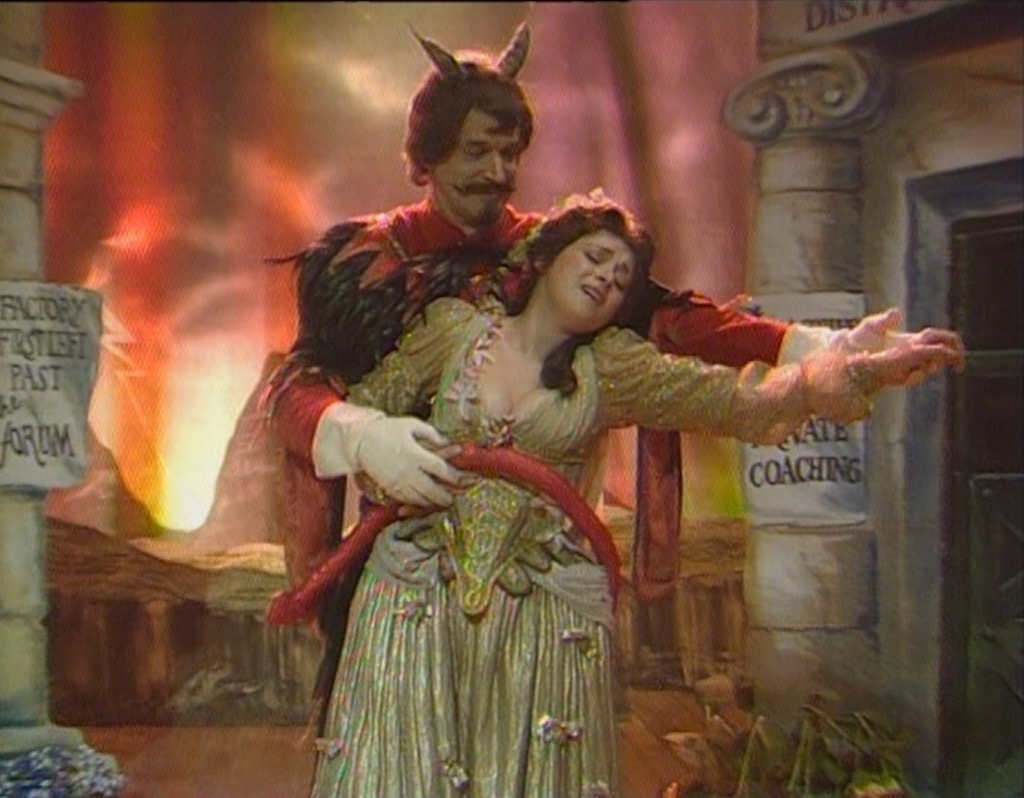
Before her descent to the underworld with Pluto, she scribbles a note to her husband, Orpheus. “I’m leaving home because I’m dead. Your dinner’s in the oven, I’ll be in Pluto’s bed.” It’s at that moment Napoleon III falls into a deep, dreamy sleep.
What makes “Orpheus in the Underworld” particularly captivating is the unexpected emotional detachment exhibited by Orpheus. Rather than mourning the loss of his wife, he displays an unexpected sense of wild enthusiasm at her absence, reveling in the newfound freedom to pursue the nymph, Cosmetica. To add another intriguing layer, Eurydice also experiences a sense of liberation following their separation.
Orpheus and Public Opinion
However, Public Opinion, personified as a stern old woman, soon emerges as an unyielding force of outrage in this superb opera. Public Opinion compels Orpheus to embark on a reluctant journey to Olympus in order to get Eurydice back.
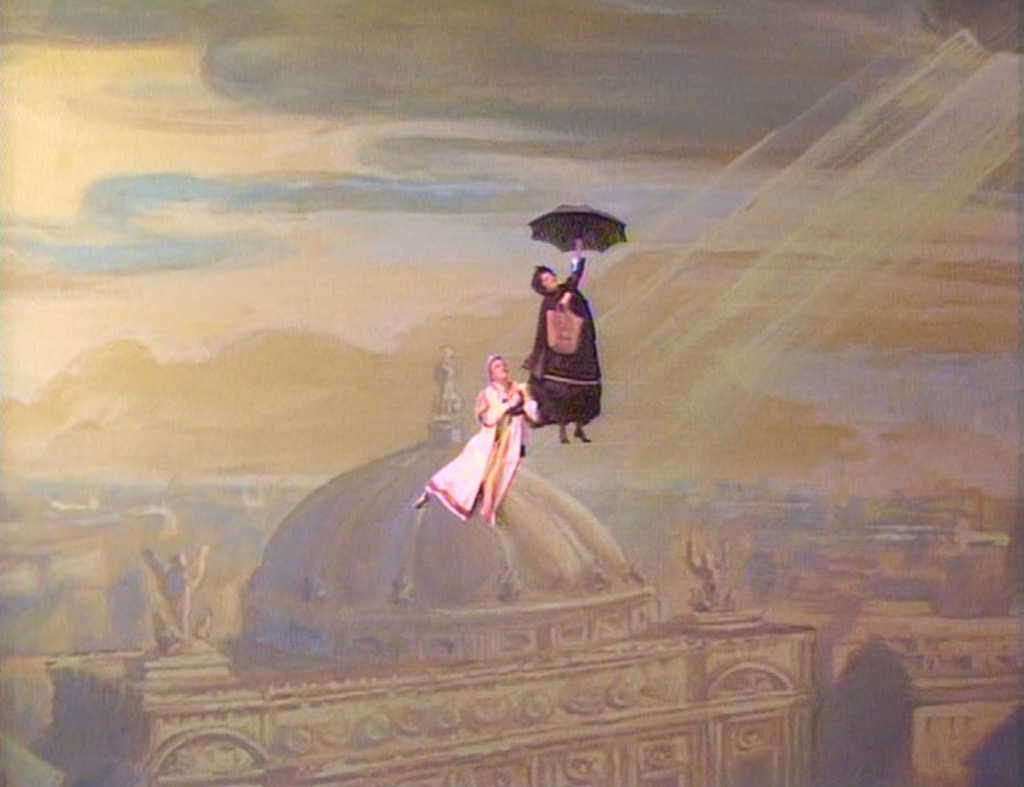
Both of them will ultimately descend into the underworld in a quest to retrieve his wife and return her her to the earthly realm.
Orpheus in the Underworld: Mount Olympus Scenes
“Orpheus in the Underworld” sets the stage for a clever and satirical exploration of the complexities of the Olympian gods, love, obligation, and the power of public opinion!
Interestingly, Cupid is depicted as a woman, and I must say, it is executed remarkably well.
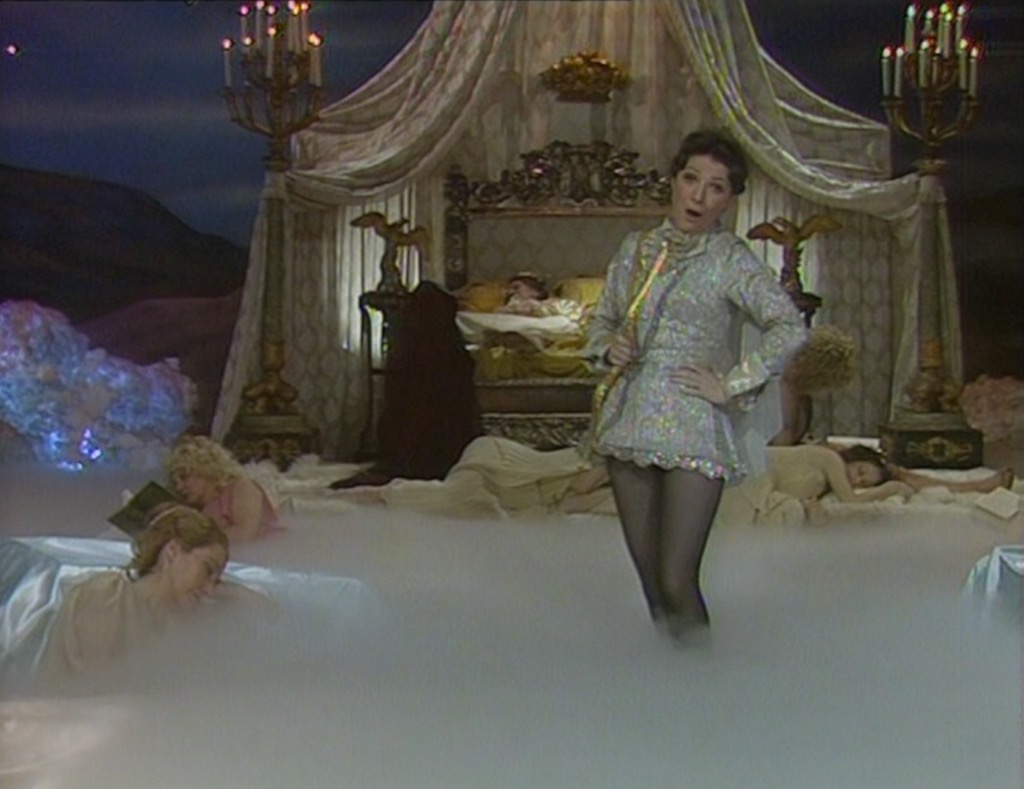
You’ll get to see Mars (Ares), Venus (Aphrodite), and Diana (Artemis) in this opera, which is great, but it’s a bit of a bummer that Apollo isn’t around.
So, here’s the scoop from Earth: a gorgeous young girl named Eurydice has been taken by a god! Juno is fuming, pointing the finger at Jupiter for being that god.
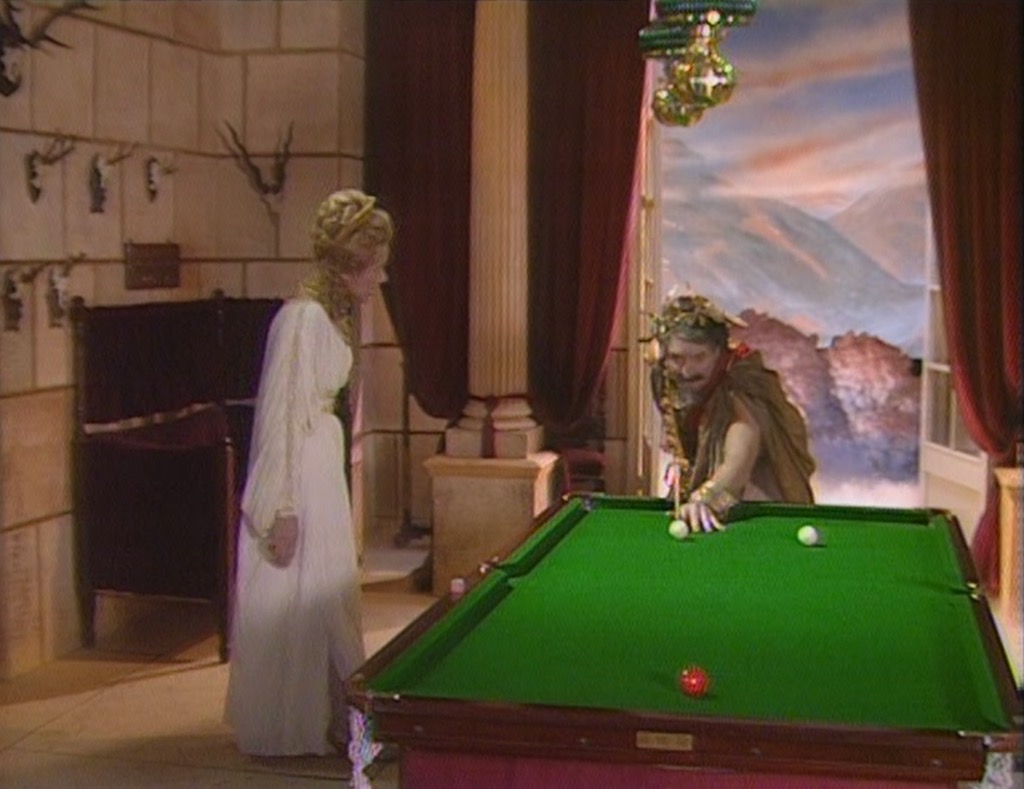
Jupiter’s aware of the situation, which he’s calling a total violation, and he’s got a hunch about who’s behind it.
To get to the bottom of things, he’s dispatched his trusty Mercury down to Earth. And good news for Jupiter — Mercury soon reports back that Eurydice is hanging out with Pluto.
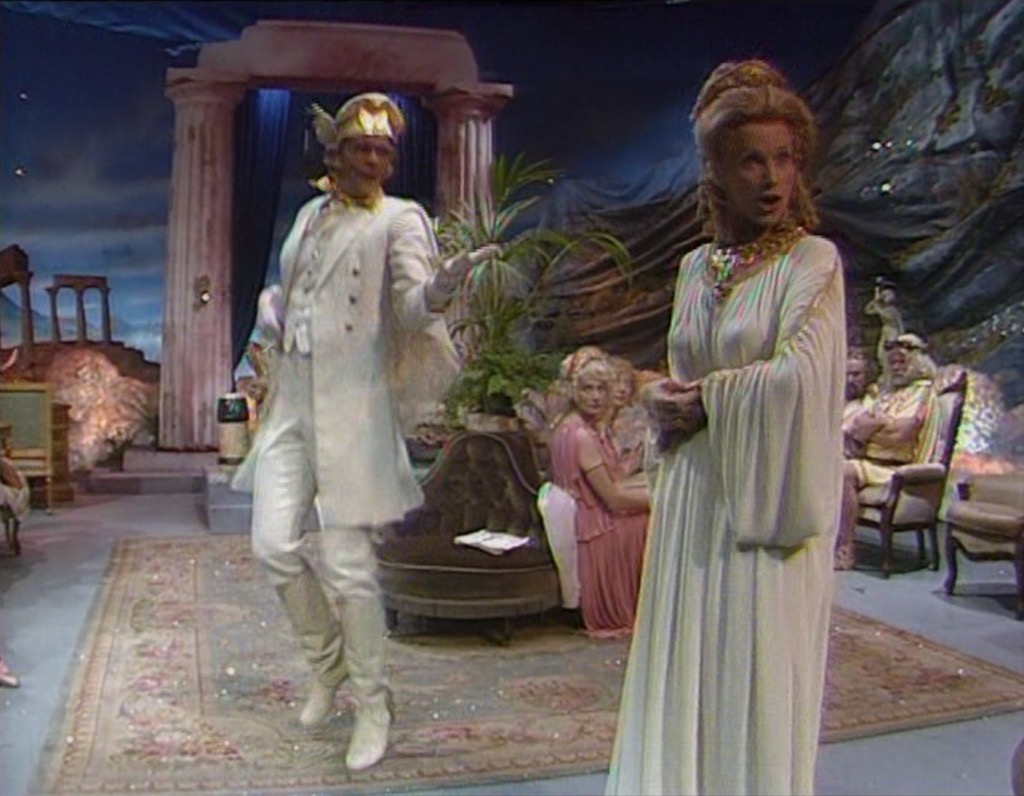
The opera frames the story in a unique historical context and adds a touch of royal irony, where the slumbering king dreams of a grander opera, seeing himself as Zeus, ruler of the heavens.
Pluto soon arrives in Olympus, trying to divert attention away. He brings along three companions: his wine waiter, his head chef, and his maitre d’, who has packed a lunch that includes a case of Burgundy, a bacon sandwich, and a bottle of essence of fire.
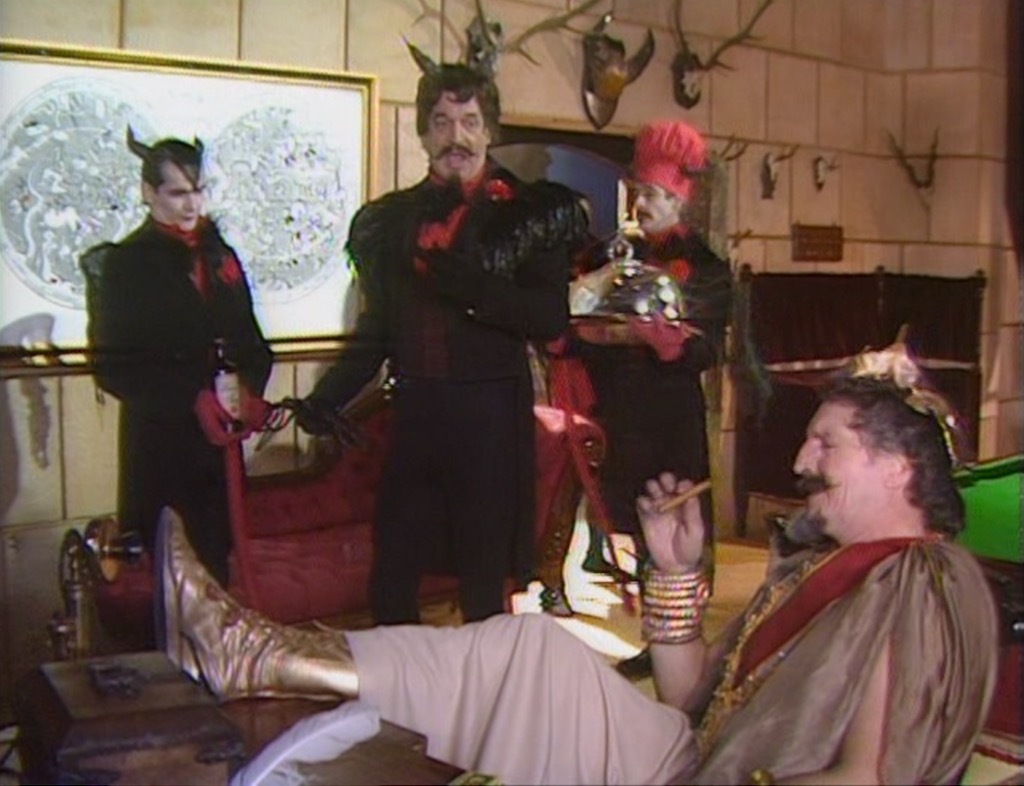
Just when you thought things were calm in Olympus, chaos breaks loose. Out of nowhere, a protest erupts, and the gods are fired up, chanting, “Down with Jupiter! Down with Jupiter!” What’s got them all riled up? They’re fed up with endless ambrosia and have completely lost their taste for nectar. It turns out, they’ve set their sights on what Pluto has instead. Who would’ve thought a little envy could spark a full-on revolution?
When Jupiter notices that everyone is starting to really admire Pluto, he decides to drop a bombshell: Pluto has just swept Eurydice away from her husband, Orpheus—the conductor of the Thebes & District Male Voice Choir! It doesn’t take long for the other gods to give Jupiter a nudge about his own romantic escapades. Juno, understandably shocked, demands a divorce from him. Just then, Mercury spots Orpheus striding into Olympus, with Public Opinion right behind him!
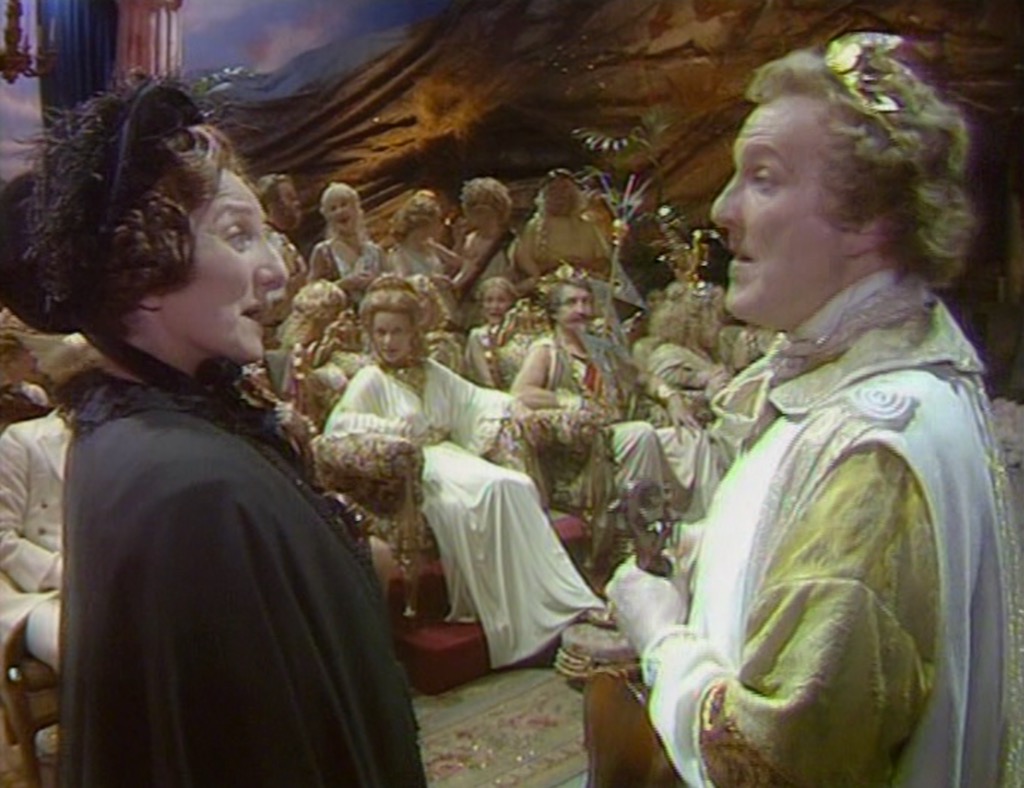
Orpheus isn’t really keen on Eurydice reappearing, but public opinion is a powerful force and he can’t ignore it. So, he decides to put on a show for the Olympian Gods, playing his violin and singing a heartfelt song that seems to touch their hearts deeply.
The gods are visibly moved by Orpheus’ performance, forcing Zeus to declare that Eurydice must return to Orpheus, despite Orpheus not exactly being over the moon about the idea. Public opinion has forced his hand, leaving him with no choice but to accept Eurydice’s return.
Jupiter decides to go to Hell to find her and everyone wants to go with him to have some fun. Pluto immediately acts and gets his lacky John Styx to hide Eurydice.
Orpheus in the Underworld: In Hell (Hades)
Eager to appear as if he is helping Orpheus reunite with Eurydice, yet secretly harboring ulterior motives to seduce her, Zeus descends into Hell — Hades, as it is referred to in this opera.
Eurydice finds herself bored in Hell and begins to desire male companionship. John Styx, Pluto’s servant, has taken a romantic interest in Eurydice, but she finds him totally repulsive. He tries to win her over by declaring that on the Earth, he was king of Beocia. But she just mockingly laughs at him.
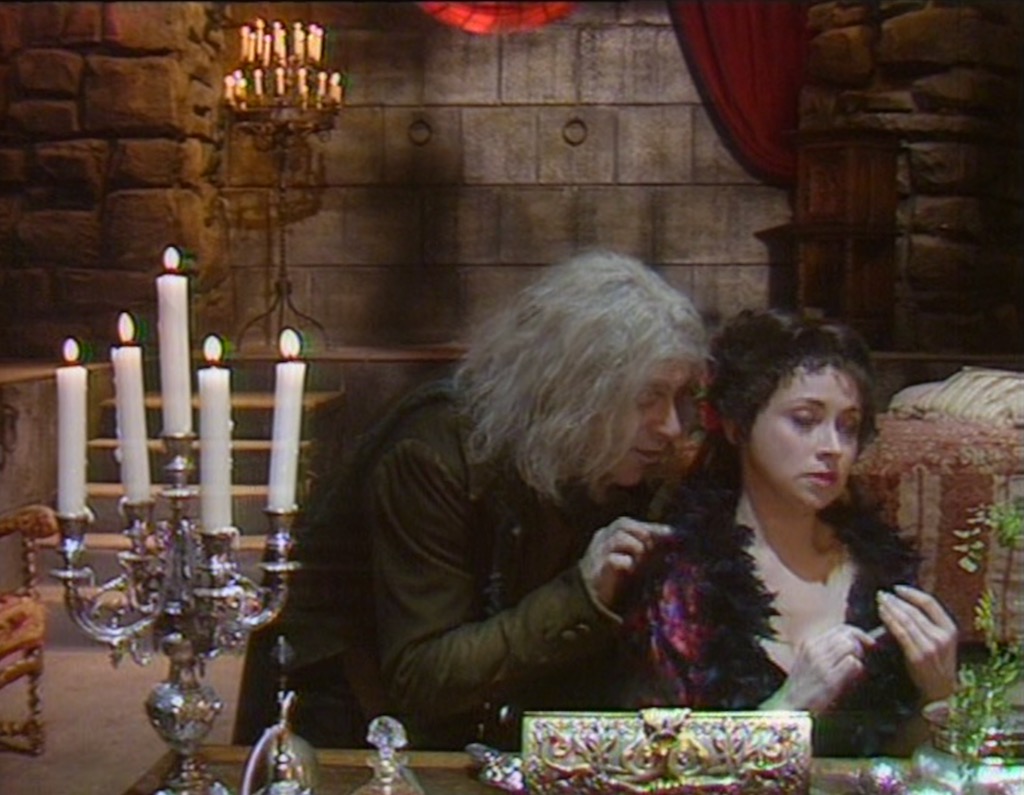
Before Zeus arrives in Helll, Pluto instructs John Styx to hide Eurydice, which he dutifully does inside a secret bathroom chamber.
When zeus arrives, he cannot find Eurydice, as she has been locked away in a hidden bathroom chamber, her beauty tantalizingly out of reach.
Cupid, ever the cunning matchmaker, knows the way to her heart — much like dangling a piece of cheese to lure a mouse. Cupid calls on the policeman d’armour to find her, but only after Zeus agrees to he demands.
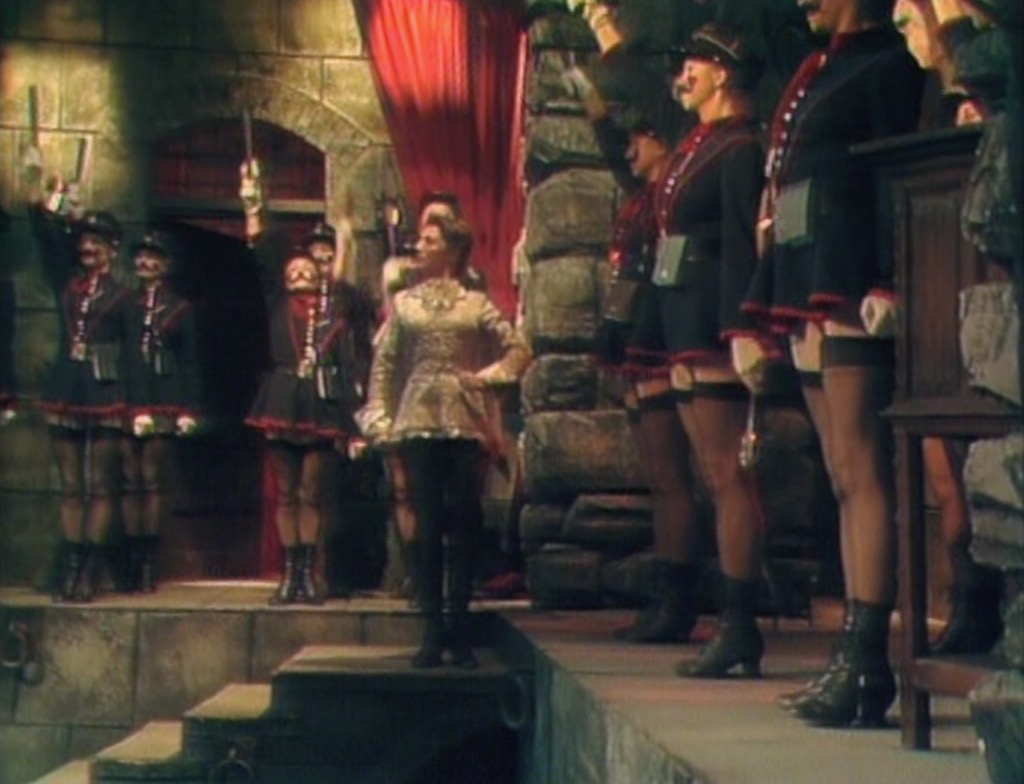
The Policeman D’Amour soon track down Eurydice, and just as they do, Zeus gets a peek at her through the keyhole. Instantly captivated by her beauty, he can’t resist the urge to get a closer look.
What happens next is an unexpected twist — Zeus turns himself into a fly to buzz through that tiny opening, hoping to charm Eurydice with his newfound disguise.
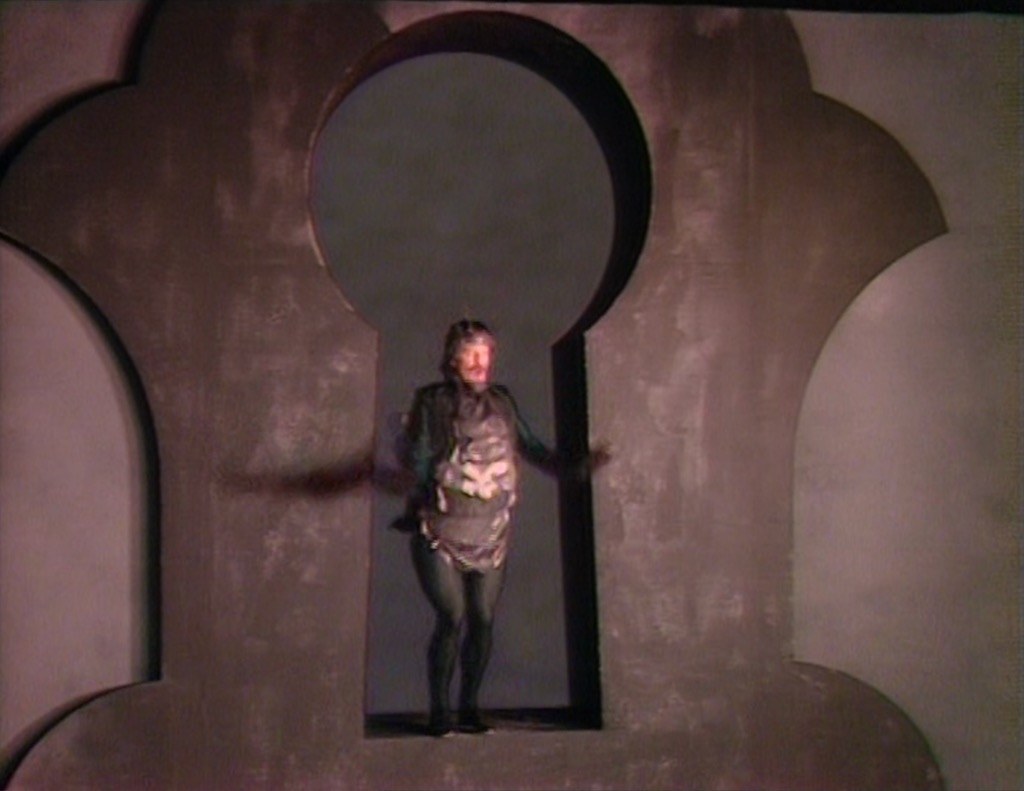
Jupiter desires to take Eurydice back to Mount Olympus to be a lover of his, but first he needs Eurydice to disguise herself as a bacchante. There is a party in one hour’s time. After that they can elope! Eurydice is keen to be with Zeus and does as the god wishes.
Pluto eventually finds out about it and ever vigilant, is not pleased with this aerial intruder seeking his beloved.
The gods are throwing a wild party in Hell, but things take a turn when Juno catches wind of Jupiter’s wandering eye. You can bet that chaos is about to erupt!
Orpheus arriving in Hades to save Eurydice
Just as the drama kicks off, Orpheus makes a grand entrance, riding in with Public Opinion after a spin on the River Styx. Talk about perfect timing!
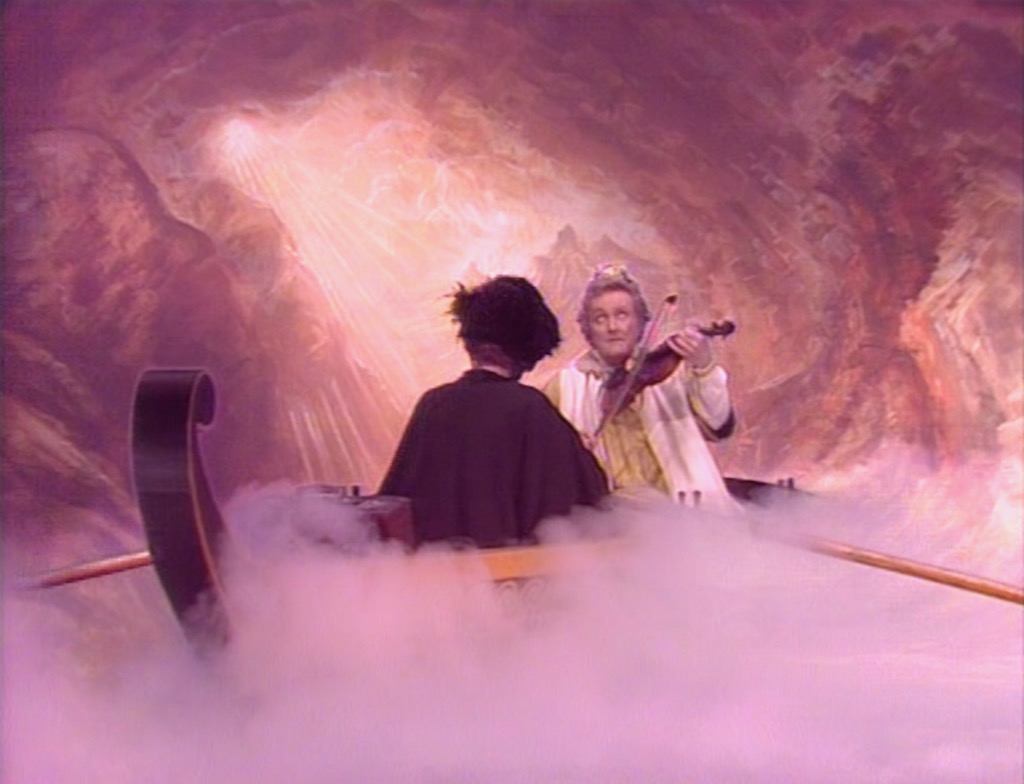
Jupiter is eager to prove to Juno that he’s a stand-up guy. He’s ready to return Orpheus’s wife, but there’s a catch: Orpheus can only get her back if he doesn’t look back at Eurydice during their journey across the River Styx.
But here’s the twist — does Orpheus even really want her back? Public Opinion is buzzing, though, convinced that the couple should reunite on Earth.
Orpheus in the Underworld: 1983 Opera Movie
“Orpheus in the Underworld” is full of unexpected twists and jaw-dropping dance routines that lead to an ending you definitely won’t see coming — I won’t spoil it for you! Watch this brilliant opera and discover how it all wraps up for yourself. With its clever humor and stunning artistry, “Orpheus in the Underworld” is truly one of the best operas out there.
Look I’m extremely clueless to opera, but this TV adaptation of “Orpheus in the Underworld” blew me away! It’s a total visual feast packed with fresh ideas, cool Greek myth themes, and plenty of theatrical flair.
If you’re seeking even more compelling reasons to watch this amazing opera, just take a peek at the enticing movie description on the back of its DVD cover.
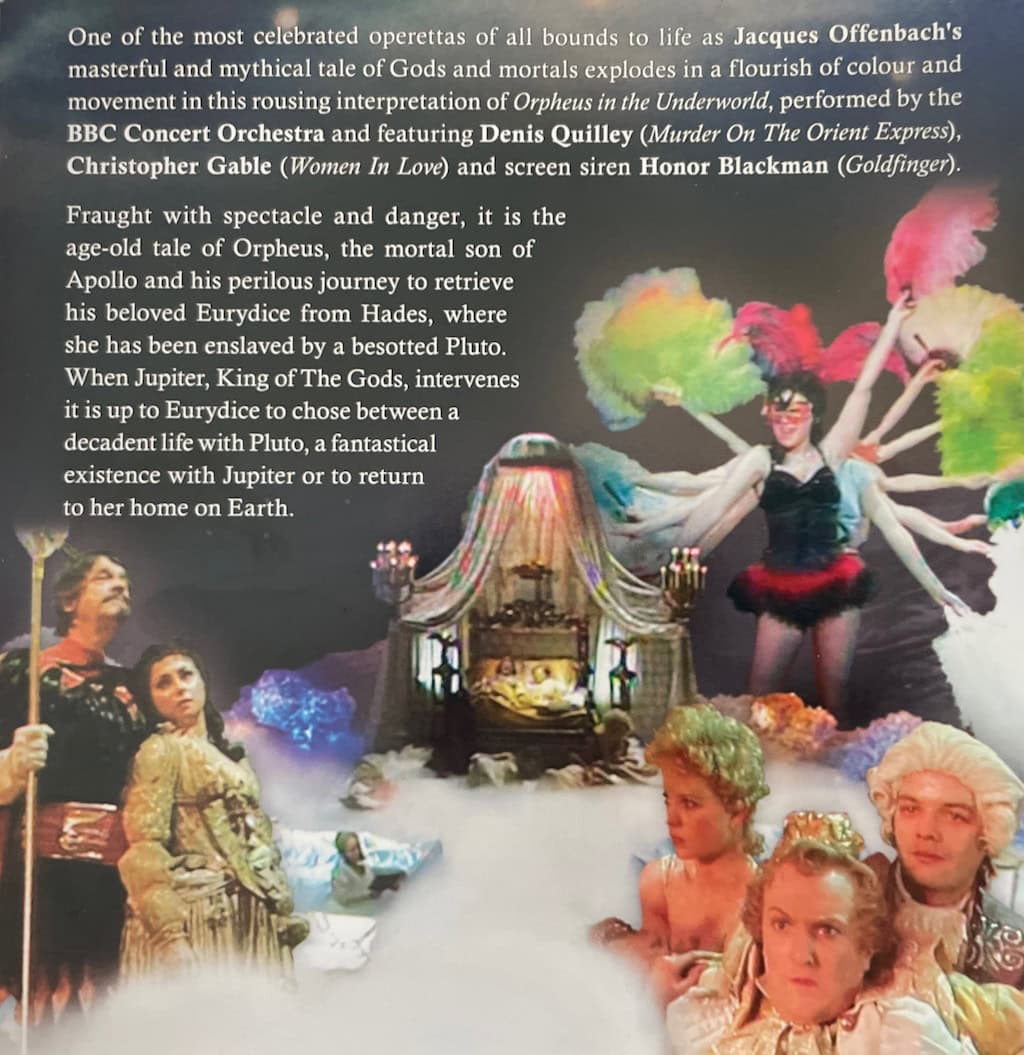
I totally recommend checking out “Orpheus in the Underworld” — it’s the best, whether you’re an opera pro or just dipping your toes in for the first time. This stunning production is amazing and takes you on an unforgettable ride through love, desire, and the afterlife. You won’t want to miss it!
Opera Songs from Orpheus in the Underworld
The BBC Concert Orchestra, led by the talented conductor Alexander Faris, and accompanied by the powerful Ambrosian Opera Chorus, have delivered an outstanding performance in this production. With a beautiful blend of excellent music and timeless opera standards, they’ve truly brought this to life in a captivating way.
The 1983 BBC version of “Orpheus in the Underworld” has so many fantastic opera tunes that I really loved! I think you’re gonna enjoy them too. I had a little fun with some creative twists on many of the opera songs, drawing inspiration from the opening lines of the songs and even paying homage to the gods behind the performances. It added a nice touch!
The lineup of opera songs includes Cancan, A Nymph in Love, Sentimental Melody, The Violin Duet, A Shepherd Am I, Mortals Below, Gods Up Above, Public Opinion, Sleep On-Sleep On, the Venus song, Cupid’s Tune, Mars’ Anthem, The Awakening, Jupiter’s Song, Diana’s Serenade, Mercury’s Melody, To Arms, Affairs of Jupiter, Orpheus’s Grievance to the Olympian Gods, I’ve Lost My Eurydice, We’re Going Down to Hell, Once All Boeotia Laid Before Me, Cherchez La Femme, Mwah-mwah, the Fly seduction opera song, Party in Hell, Infernal Can-Can, Don’t look Back Orpheus, and The Galop.
I’m sure you’ll enjoy many of these opera songs! My favorite opera songs from “Orpheus in the Underworld” include Mercury’s Melody and the delightful song sung by the Policeman d’amour headed by Cupid.
I’ve seen a live performance of La bohème at the Sydney Opera House, but trust me, that show doesn’t hold a candle to this one. Despite its popularity with modern crowds, it just can’t compete with the magic of this masterpiece!
Greek Mythology Love Stories and their Secrets
What Greek myth fan could resist watching “Orpheus in the Underworld”? This incredible opera movie puts a captivating twist on one of the best Greek myth love stories of all time, bringing all the drama and magic to life. It’s a must-see for anyone who loves a good story steeped in legend!
If you’re a fan of great musicals, you should also know about the secret meaning of the movie Grease. Trust me, after reading this revelation, there is no turning back!
Another top recommendation is to watch as many of these 20 Romantic Movies for Greek Mythology Fans as you can. Enjoy!
Pin it … Share it
